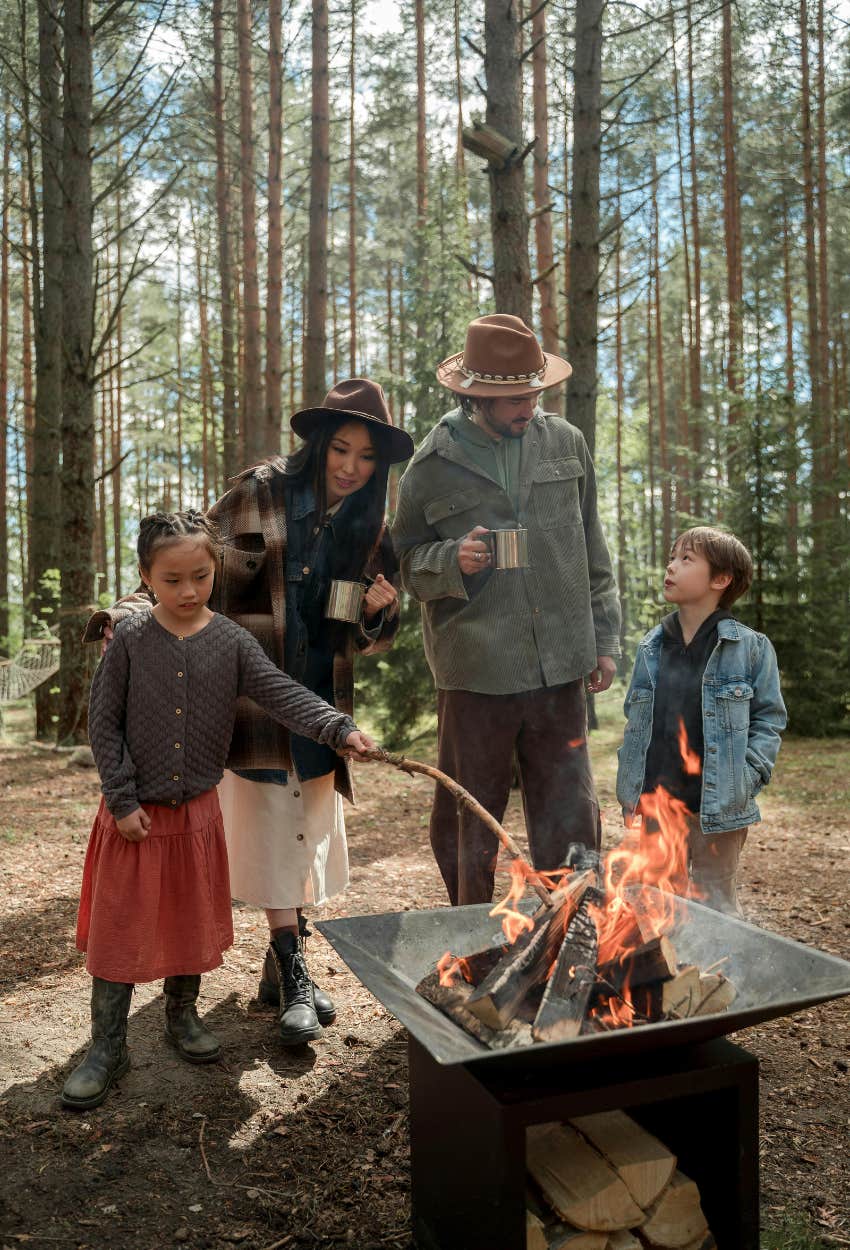People Whose Parents Took Them On Family Vacations As Kids Have These 6 Advantages In Adulthood
Start making memories!
 PeopleImages.com - Yuri A | Shutterstock
PeopleImages.com - Yuri A | Shutterstock It has actually been proven on a scientific level that the experience of family travel makes kids demonstrably happier while also educating them and enriching their lives. In fact, research shows that an experience like a family vacation can actually function as a "happiness anchor," a set memory that children can use to help them navigate back to positive emotions when they're encountering stress and anxiety later in life.
In the simplest terms, parents who bring their kids on family vacations give them valuable coping mechanisms that will be an asset to them in adulthood. In fact, the research highlighted six specific advantages that kids who got to experience travel with their family have as adults.
Here are the advantages that people who went on family vacations as kids have in adulthood:
While discussing this research with The Huffington Post, John McDonald, Director of the Family Holiday Association, described the happiness anchor effect. He said that "reflecting on our happiest memories of joyful time spent together as a family can be extremely powerful in bringing relief and respite when faced with the darker times that life can bring."
 Ron Lach | Pexels
Ron Lach | Pexels
"By using these memories as an anchor to take us back to more cheerful moments, we’re often able to approach problems with a fresh sense of perspective. But for many without such memories, reigniting a sense of optimism for getting through the tougher times can seem like an impossible task.”
Yes, traveling with kids can be a lot of work and may require some pre-planning from a financial perspective in today's economy, but it's totally worth it. Because those memories last much longer than you'd ever imagine, and they can help your kids remember happier times when they really need the reminder. So instead of going out and buying your young ones the newest game console, consider how you can make your kids happier (and flat-out improve their lives) with a family vacation instead.
1. Lasting family bonds
Traveling allows you to carve out special time with just your family, away from work, school, and regular life. It's very important and invaluable to spend time as a family without the added distractions of everyday life. But that's not the only benefit. According to a 2010 research study from the Netherlands, experiencing new places together definitely increases a family's happiness, but even just planning a family vacation together can result in weeks of boosted happiness overall. (And we know those memories endure.)
As adults, having a bonded family to rely on is invaluable as well. Holidays become joyful get-togethers instead of stressful obligations. And if you have kids of your own, extended family is an asset to their development and overall joy.
2. A lifetime love of learning and appreciation for diversity
 everst | Shutterstock
everst | Shutterstock
Exposing a child to any kind of new environment opens the door to learning and knowledge, especially traveling! It introduces them to new languages, cultures, and people. Studies have even found that traveling improves children's grades. Even better, neurological research shows that people exposed to "enriched environments" — places that are new with plenty of opportunities for social and physical interaction (i.e., like a vacation spot) — have higher IQs. They also have lower blood pressure, fewer stress hormones, and less cholesterol. So travel can make your kids happier, healthier, and smarter too!
A recent survey even found that taking kids on family vacations makes them more open to other cultures, creating more open-minded and accepting adults. It opens the door to a love of learning and an appreciation for the differences that make our world an amazing place.
3. Adaptability and outside-the-box thinking
Traveling means moving away from the usual routines of everyday life, which requires children to develop skills they wouldn't normally have if they didn't experience different situations.
Getting kids out of their structures also forces them to be more adaptable. As a result, children build confidence during travel by being able to try new things. They also learn that not everything in life will always work out the way you planned it. You may get lost, but it teaches you flexibility. And half the fun is getting there anyway, right?
4. An understanding that experiences, not things, create happiness
Traveling is probably one of the best ways to create memories, and there is nothing greater you can give your family than memories that they will never forget. Whether you're taking a once-in-a-lifetime tour of a landmark or setting up for a family game night and some room service in your hotel room, you're making memories that can forever be imprinted in your child's mind.
These memories anchor them in a remarkable time and place in their lives. And it's so important to make these memories and cherish this time as a family while kids are young and before they go off on their own — and it doesn't hurt to know they can one day pass these amazing memories down to their own families!
Dr. Thomas Gilovich, a psychology professor at Cornell University, researched this very topic and found conclusively that experiences bring us lasting joy compared to material possessions. “Our experiences are a bigger part of ourselves than our material goods,” explained Gilovich. “You can really like your material stuff. You can even think that part of your identity is connected to those things, but nonetheless, they remain separate from you. In contrast, your experiences really are part of you. We are the sum total of our experiences.”
5. A love of nature that helps balance out too much tech
 Chokniti-Studio | Shutterstock
Chokniti-Studio | Shutterstock
We live in a digital world, and it's super easy for kids to get addicted to technology. That addiction doesn't just go away with adulthood either. Spending countless hours at work on a computer and then heading home to doomscroll or binge Netflix is a typical weeknight for most adults. However, kids who travel are more likely to prioritize spending time in nature even as adults.
Traveling is a way for them to step away from the TV screens and put down their gadgets. Planning fun activities allows children to get outside, exercise, and get fresh air. It also teaches them to appreciate nature and gives parents a chance to experience nature with them, as well as show them the importance of protecting our environment. Furthermore, the research highlighted by Huffington Post showed that being in nature (even for as little as 20 minutes!) improves attention and concentration levels and lowers blood pressure and stress levels.
6. Independence and a sense of responsibility
Everything associated with travel, not just the trip itself, is a learning experience for kids. Packing, ensuring you have all the documents you need, thinking ahead, and creating a schedule that allows you to use your time efficiently are invaluable lessons learned simply from going on family vacations.
Those lessons bleed into adulthood and foster independence and responsibility. Kids who are well-traveled grow into adults who know how to prioritize their own needs and work towards goals without being pushed by others.
Sloane Solomon is a professional writer and editor who graduated from the University of Colorado with a Bachelor's in English Writing.

